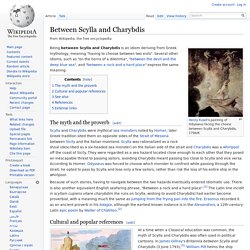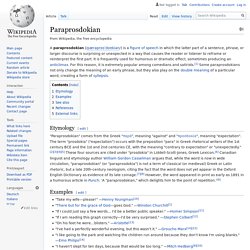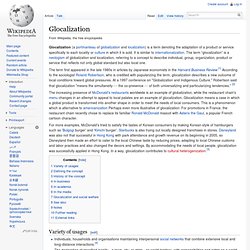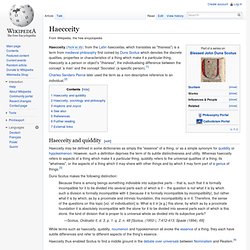

Big Words - Or, What Teacher Meant When They Said "Lexicon" Shambolic - definition of shambolic by The Free Dictionary. Sham·bol·ic (shăm-bŏl′ĭk) adj.Informal.

Shibboleth. Between Scylla and Charybdis. Henry Fuseli's painting of Odysseus facing the choice between Scylla and Charybdis, 1794/6 Being between Scylla and Charybdis is an idiom deriving from Greek mythology, meaning "having to choose between two evils".

Several other idioms, such as "on the horns of a dilemma", "between the devil and the deep blue sea", and "between a rock and a hard place" express the same meaning. The myth and the proverb[edit] Scylla and Charybdis were mythical sea monsters noted by Homer; later Greek tradition sited them on opposite sides of the Strait of Messina between Sicily and the Italian mainland.
Scylla was rationalized as a rock shoal (described as a six-headed sea monster) on the Italian side of the strait and Charybdis was a whirlpool off the coast of Sicily. Because of such stories, having to navigate between the two hazards eventually entered idiomatic use. Cultural and popular references[edit] See also[edit] Louche. Feckless. Paraprosdokian. Etymology[edit] "Paraprosdokian" comes from the Greek "παρά", meaning "against" and "προσδοκία", meaning "expectation".

The term "prosdokia" ("expectation") occurs with the preposition "para" in Greek rhetorical writers of the 1st century BCE and the 1st and 2nd centuries CE, with the meaning "contrary to expectation" or "unexpectedly. "[2][3][4][5] These four sources are cited under "prosdokia" in Liddell-Scott-Jones, Greek Lexicon.[6] Canadian linguist and etymology author William Gordon Casselman argues that, while the word is now in wide circulation, "paraprosdokian" (or "paraprosdokia") is not a term of classical (or medieval) Greek or Latin rhetoric, but a late 20th-century neologism, citing the fact that the word does not yet appear in the Oxford English Dictionary as evidence of its late coinage.[7][8] However, the word appeared in print as early as 1891 in a humorous article in Punch: 'A "paraprosdokian," which delights him to the point of repetition.
Lexicon Valley. Vocabulary.com - Learn Words - English Dictionary. Metagrobolize, v. Define Perfidy at Dictionary. Inchoate. Define Anodyne at Dictionary. Glocalization. Glocalization (a portmanteau of globalization and localization) is a term denoting the adaptation of a product or service specifically to each locality or culture in which it is sold.

It is similar to internationalization. The term “glocalization” is a neologism of globalization and localization, referring to a concept to describe individual, group, organization, product or service that reflects not only global standard but also local one. The term first appeared in the late 1980s in articles by Japanese economists in the Harvard Business Review.[1] According to the sociologist Roland Robertson, who is credited with popularizing the term, glocalization describes a new outcome of local conditions toward global pressures. Lèche-Vitrine.
What we call window shopping.

Is a much more serious hard core activity in Paris. In fact it's known as "faire du lèche-vitrine. " Translated as licking the windows - a tad gross wouldn't you think for the very proper French? Men do it just as much as women in Paris. Equality of the sexes and all that Even Parisien hounds do it. Here some Parisiens are lined up waiting their turn to get up close and personal to the window...hmmm Some shops have open windows and sell delicious crepes, so perhaps there is good reason to call it window licking. Ludic - definition and meaning. Sesquipedalian - definition and meaning. Alert. Mutatis mutandis. Haecceity.
Haecceity (/hɛkˈsiːɪtɪ/; from the Latin haecceitas, which translates as "thisness") is a term from medieval philosophy first coined by Duns Scotus which denotes the discrete qualities, properties or characteristics of a thing which make it a particular thing.

Percipient. Adumbrate. Define Baedeker at Dictionary. Palimpsest. Define Louche at Dictionary. Integument. This article deals with the general meaning of the integument.

Consult list of articles below for other articles dealing with similar or related concepts "Integument" is a general term in biology that refers most commonly to the natural covering of an organism or an organ, such as its skin, husk, shell, or rind.[1] It derives from integumentum, which means "a covering" in Latin. In a transferred or figurative sense, it could mean a cloak or a disguise.[2] In English "integument" is a fairly modern word, its origin having been traced back to the early seventeenth century. It can mean a material or layer with which anything is enclosed, clothed, or covered in the sense of "clad" or "coated", as with a skin or husk.[1] Botanical usage[edit] Zoological usage[edit] The integument of an organ in zoology typically would comprise membranes of connective tissue such as those around a kidney or liver.
Derivative terms and sundry usages[edit] References[edit] ^ Jump up to: a b Brown, Lesley (1993).